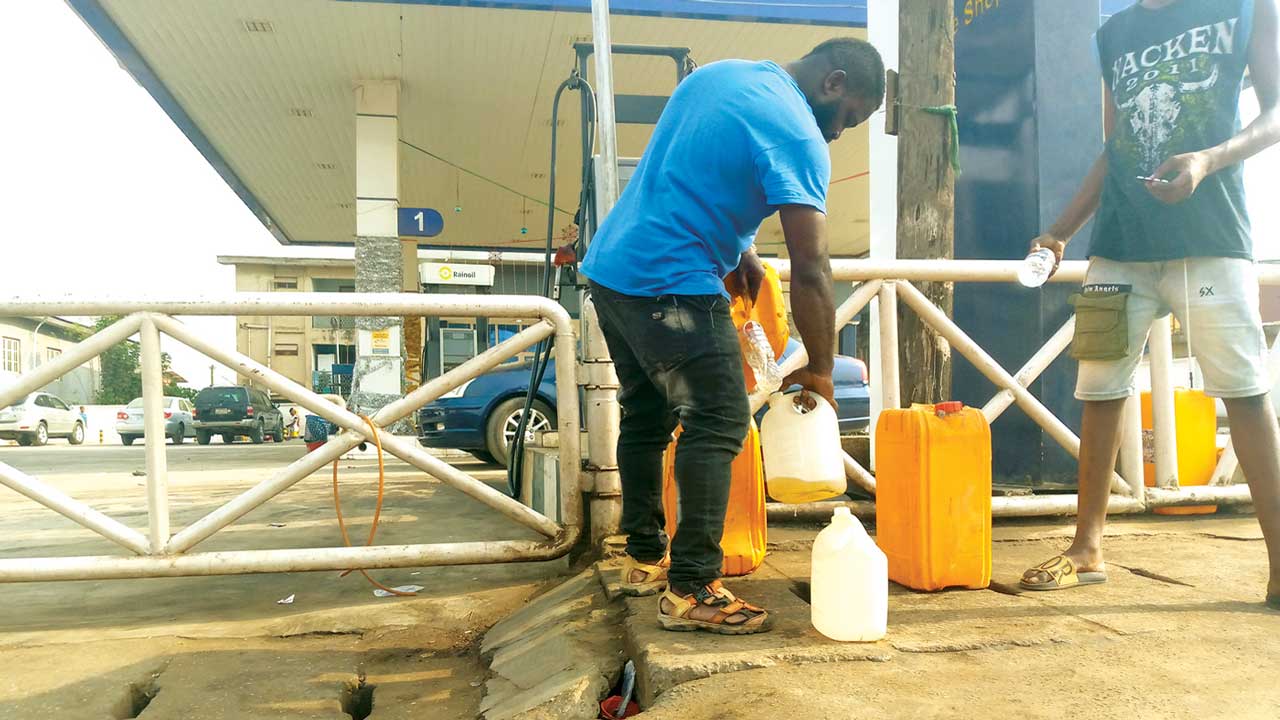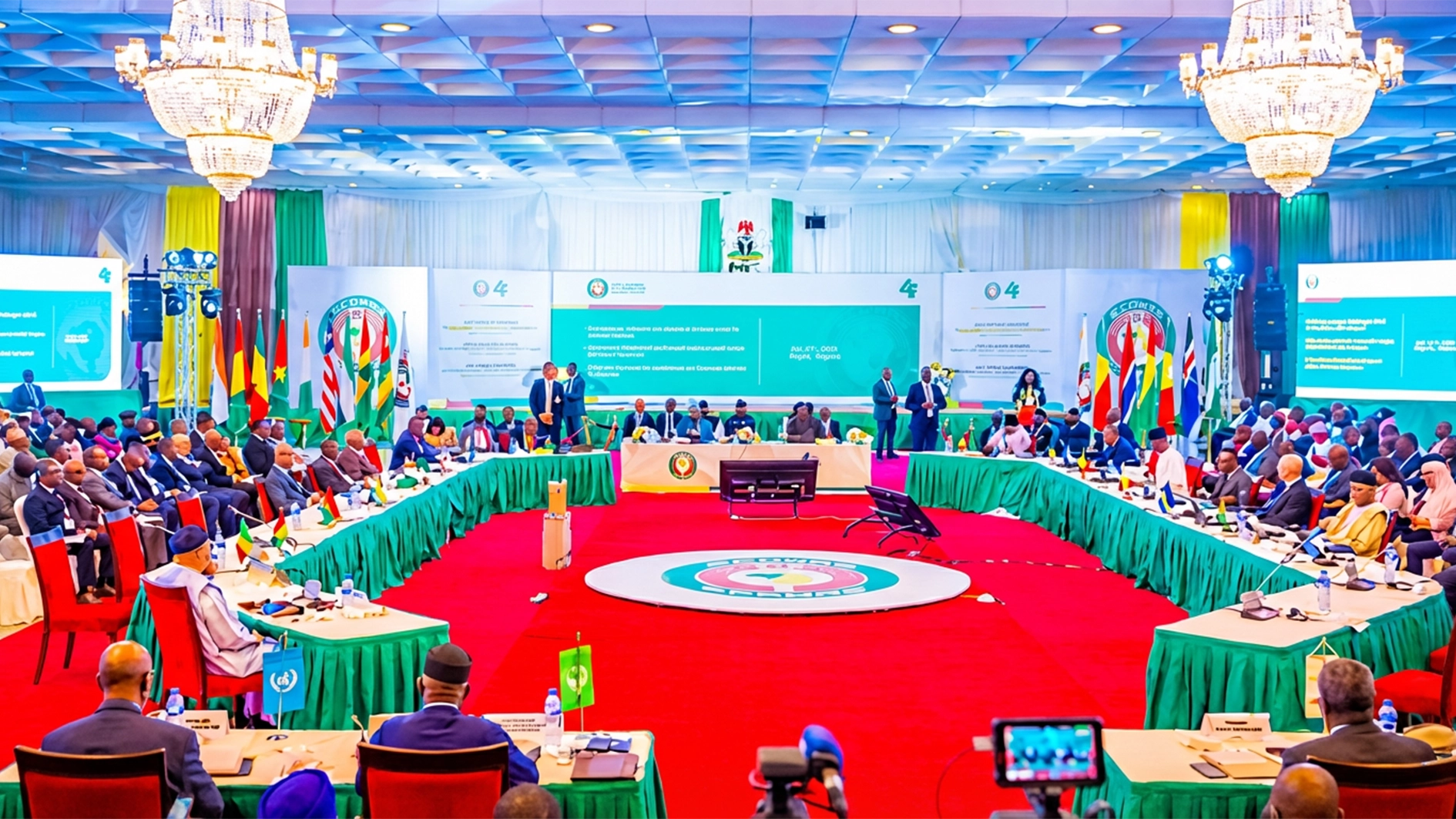
It is unacceptable to subject Nigerians to excruciating pains while trying to access Premium Motor Spirit (PMS), otherwise known as petrol, the market of which the Federal Government claims has been deregulated. It also does not make sense for Nigerians to pay as high as N900-N1000 per litre of petrol, at a time when the cost of living is sky-high and the citizens are dejected.
To make matters worse, there is no petrol to buy. Prices of diesel, kerosene and associated products have gone through the roof since the government embarked on this deregulation journey in 2003. Today, consumers pay as high as N1500 for a litre of diesel. PMS is more widely used in mass transportation and SME activities.
Each time the price of PMS is adjusted or the product becomes unavailable for whatever reason, it creates an automatic ripple effect on the prices of other products and services. It is an unfortunate situation in a country that is blessed with enormous oil deposits. The government must wake up to its responsibility of ensuring that Nigerians access petroleum products seamlessly.
Signs that Nigerians are in for a turbulent era with petrol began after President Bola Tinubu announced on May 29, 2023, that the subsidy on petrol was gone. That was at a time when none of the nation’s four refineries was functional. For more than 10 years, the country has relied on imported petrol.
Experts had warned that a deregulated petroleum market that relies on importation is a recipe for chaos. The market is bound to experience hiccups in response to vagaries in international prices of crude and the level of crude production at home. Crude oil production in Nigeria has been short of what the Organisation of Petroleum Exporting Countries (OPEC), the global oil-producing cartel, approved for the country, due to low investment and theft.
This government made matters worse when it pari passu, allowed the naira to roam unsupported in the forex market, where it took an unprecedented trouncing before surreptitious moves to save it. Despite this rash of policies, citizens hoped for the best, expecting that the government would have done its homework and was prepared for the consequences.
Earlier signs of fuel scarcity were noticed in Abuja since March. Operators merely said it was due to logistics. Towards the Easter holidays, queues were noticed in Lagos and many outlets had no products to dispense. It was blamed on the holidays, which affected loading. However, acute fuel scarcity seems to have come to stay and the explanations offered don’t add up.
Clearly, there are breaches in the supply chain and stakeholders, particularly the Nigerian National Petroleum Company Limited (NNPCL), are struggling to shift responsibility. National President of the Petroleum Products Retail Owners Association of Nigeria (PETROAN), Billy Gillis-Harry, said they were ready to sell to buyers so long as the NNPCL delivers products, suggesting that the problem is situated in the NNPCL.
The Independent Petroleum Marketers Association of Nigeria (IPMAN) blames the scarcity on product shortage, which is linked to ongoing maintenance of refineries in Europe. Public Relations Officer of IPMAN, Chinedu Ukadike stated: “The situation is that there is no product. Once there is lack of supply or inadequate supply, what you will see is scarcity and queues will emerge at filling stations,” which is what has been happening for close to two months.
The sole importer of petrol, the NNPCL, blames logistics challenges and problems with vessels, without admitting that there are underlying factors that hobble the sector. Industry experts had in the past questioned NNPCL’s opaqueness and low Forex remittances to government. Even the recent directive for the company to remit crude sales proceeds to the Central Bank of Nigeria (CBN) is fraught with misunderstandings.
The Petroleum Industry Act (PIA) is the guide to regulate operations in the sector. It is far-reaching and was designed to sanitise the sector, enhance operations and boost production upstream and supplies downstream. All those have been consigned to the shelf. In practice, nothing has changed apart from subsidy removal, which allows government to maximise profits by milking the end users. Over 90 per cent of marketers who got licences to import fuel have not done any importation because government has gone back to price control immediately subsidy was removed.
Subsidies on PMS run into a trillion naira monthly, according to experts, with government leeching on NNPCL and micromanaging the market. About a month ago, traders who sold PMS to NNPCL said they were owed $3 billion. The clear implication is that NNPCL is not liquid enough to sustain fuel importation.
Nothing has changed with subsidy payments despite repeated denials and the President is careful not to admit that he blundered.
Unless these underlying factors are cleared, we fear Nigerians are in for a long-term crisis. We urge the government to allow the PIA to function and regulate the sector as it was envisaged. The President should stop dabbling as the substantive petroleum minister, an interference that is unconstitutional and out of sync with global best practices in other oil-producing jurisdictions.
The government should let the NNPCL level with marketers whose licences are due for an update. Marketers have complained that the requirements for renewal by NMDPRA are too demanding and that out of 15,000 marketers that are on the portal with licences, only 1,050 have renewed theirs as of April. Meanwhile, IPMAN is threatening to shut down for non-payment of bridging claims of over N200 billion.
We urged the government to sanitise the sector because the perennial fuel crisis is a bad advertisement for an oil-producing country. It portrays a leadership that cannot govern and manage resources well.
Irrespective of whatever quick-fix methods the government conjures to end this fuel crisis, what has been established is that there is deep-seated sectoral dysfunction that must be overcome in the immediate and the long term. The refineries must be fixed to commence production for the local market.
The economy must be diversified from over-dependence on oil as the most steady forex earner. Above all, the government must stop operating NNPCL and the sector in the dark. Let due process prevail.






